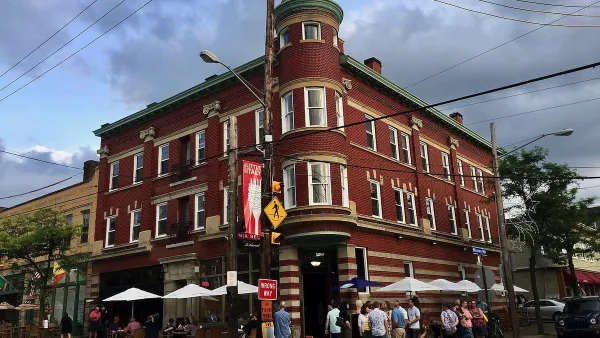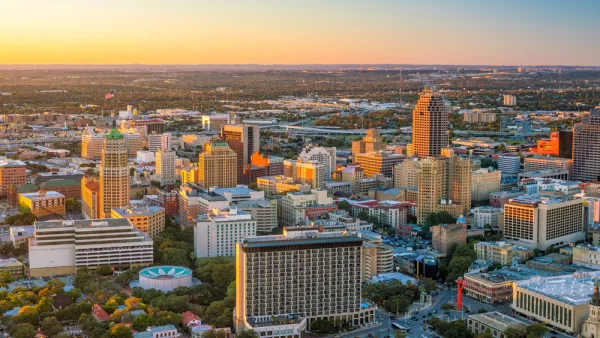While some contend that our communities are sculpted by an unfettered free market, there are a variety of programs and policies that underwrite the costs of poorly planned development. "A Brief History of Your Neighborhood" examines a few.
It’s easy to forget that our neighborhoods have evolved into the places they are over time. Their design reflects years of decisions, policies, and layers of investment and reinvestment. We may think that the way our communities developed – from the old strip mall to the new subdivision down the road – resulted from an unfettered free market based upon pure consumer demand.
But the real story is quite different. The market has played a role, but it has done so under the influence of many forces. These forces – some small, some large – collectively and dramatically influence the shape of our communities.
“A Brief History of Your Neighborhood,” is an eight part series examining some of these issues, and identifying the key public policies that shape the location and type of development we see in our communities. These policies impact the decisions we make about where to live, shop, and work. Ultimately, they determine the range of choices we have about where we put down roots and how we live our lives.
FULL STORY: A Brief History of Your Neighborhood

Analysis: Cybertruck Fatality Rate Far Exceeds That of Ford Pinto
The Tesla Cybertruck was recalled seven times last year.

National Parks Layoffs Will Cause Communities to Lose Billions
Thousands of essential park workers were laid off this week, just before the busy spring break season.

Retro-silient?: America’s First “Eco-burb,” The Woodlands Turns 50
A master-planned community north of Houston offers lessons on green infrastructure and resilient design, but falls short of its founder’s lofty affordability and walkability goals.

Test News Post 1
This is a summary

Analysis: Cybertruck Fatality Rate Far Exceeds That of Ford Pinto
The Tesla Cybertruck was recalled seven times last year.

Test News Headline 46
Test for the image on the front page.
Urban Design for Planners 1: Software Tools
This six-course series explores essential urban design concepts using open source software and equips planners with the tools they need to participate fully in the urban design process.
Planning for Universal Design
Learn the tools for implementing Universal Design in planning regulations.
EMC Planning Group, Inc.
Planetizen
Planetizen
Mpact (formerly Rail~Volution)
Great Falls Development Authority, Inc.
HUDs Office of Policy Development and Research
NYU Wagner Graduate School of Public Service




























